Recent Blog Posts
Curfews and Protesters’ Rights in Illinois
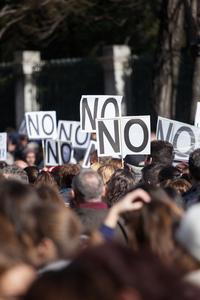 Protesters and police have always had something of an uneasy relationship. On the one hand, protecting people's right to freedom of speech is a valuable. On the other, maintaining public order is also important, both for the safety of the people in the protests as well as other people in the area. A case involving the arrests of protesters comes down squarely on the side of the public order. The case involves numerous defendants who were arrested for a curfew violation in Grant Park, who were arguing that the enforcement of the curfew violated their First Amendment rights.
Protesters and police have always had something of an uneasy relationship. On the one hand, protecting people's right to freedom of speech is a valuable. On the other, maintaining public order is also important, both for the safety of the people in the protests as well as other people in the area. A case involving the arrests of protesters comes down squarely on the side of the public order. The case involves numerous defendants who were arrested for a curfew violation in Grant Park, who were arguing that the enforcement of the curfew violated their First Amendment rights.
The Case
This case actually does not have to do with the recent wave of protests across the country, though it may have important implications for future cases surrounding them. Instead, this case goes back to 2011 and the Occupy protestors. On October 15, 2011, Occupy Chicago held a rally, that culminated in a march to Grant Park. Once the protesters reached grant park, they began putting up tents. The police issued warnings that the park closed at 11 p.m., and that people still in the park after that time may be arrested.
Cook County Board President Wants to Reform Automatic Transfers
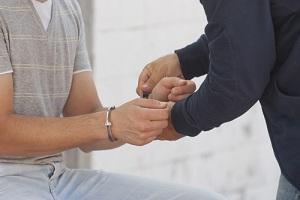 Cook County Board President Toni Preckwinkle recently called for an end to the practice of automatically trying certain juvenile offenders as adults. The cause of that practice, known as automatic transfers, is a 1982 law that sets up part of Illinois' juvenile justice system, but exempts some types of crimes from juvenile prosecutions. While that law was seen as being tough on crime at the time, it takes discretion out of the hands of judges who are actually seeing the specific cases, it disparately impacts minority youths, and it contributes to the existence of an expensive prison population.
Cook County Board President Toni Preckwinkle recently called for an end to the practice of automatically trying certain juvenile offenders as adults. The cause of that practice, known as automatic transfers, is a 1982 law that sets up part of Illinois' juvenile justice system, but exempts some types of crimes from juvenile prosecutions. While that law was seen as being tough on crime at the time, it takes discretion out of the hands of judges who are actually seeing the specific cases, it disparately impacts minority youths, and it contributes to the existence of an expensive prison population.
What Automatic Transfers Are
Automatic transfers are transfers of minors into adult court that happen outside of judicial discretion. In Illinois, children under the age of 17 are often tried in juvenile court rather than forcing them to defend themselves as though they were an adult. However, certain minors who are accused of certain crimes are moved directly into the adult justice system, regardless of whether that makes sense.
The Legal Definition of Theft in Illinois
 Theft is one of the most common crimes in Illinois, but many people do not actually understand the law behind it. The law of theft is surprisingly complex because theft in Illinois is such a broad crime. It covers mugging, pickpocketing, and shoplifting among other types of theft. The legal framework used to cover this crime is found at 720 ILCS 5/16-1. That section of Illinois law lists the basic elements that make up theft, as well as the aggravating factors, which are specific circumstances that increase the severity of the crime in the eyes of the law.
Theft is one of the most common crimes in Illinois, but many people do not actually understand the law behind it. The law of theft is surprisingly complex because theft in Illinois is such a broad crime. It covers mugging, pickpocketing, and shoplifting among other types of theft. The legal framework used to cover this crime is found at 720 ILCS 5/16-1. That section of Illinois law lists the basic elements that make up theft, as well as the aggravating factors, which are specific circumstances that increase the severity of the crime in the eyes of the law.
Basic Theft in Illinois
At its core, the law defines theft as taking unauthorized control of another person's property. In the past, the law used to make distinctions about the methods used to take control. For instance, it considered taking by threat of force to be a different crime than taking something by deception. Some jurisdictions still operate under these rules, but for the most part Illinois has abolished them. In Illinois, theft is all the same, regardless of whether someone uses the threat of force, deception, or simply takes something.
Group Crime in Illinois
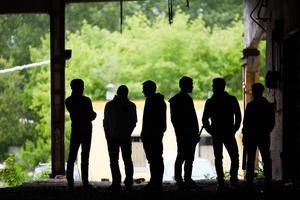 The institution of criminal law has long been concerned with groups of people coordinating their criminal activities. The concern stems from the belief of judges and legislators that people working together will be capable of committing more serious crimes more easily.
The institution of criminal law has long been concerned with groups of people coordinating their criminal activities. The concern stems from the belief of judges and legislators that people working together will be capable of committing more serious crimes more easily.
Consequently, the law recognizes a special crime known as conspiracy. Conspiracy is a crime in its own right, and it is distinct from any underlying crime. This means that if two people conspire to commit a murder and they carry it out, they would be guilty of both conspiracy and murder. This stand alone nature of conspiracy has important implications both for how the crime is defined and how it is punished.
The Crime of Conspiracy
Simply put, the crime of conspiracy is the crime of agreeing to commit a crime. However, that simple definition creates a difficult problem for the criminal law. The American criminal justice system does not like to punish people for their mere thoughts. After all, two people sitting around idly joking about robbing a bank together is a far step removed from an experienced gang of bank robbers with tools, plans and skills.
Illinois Legislative Committee Expected to Announce Gun Sentencing Reforms
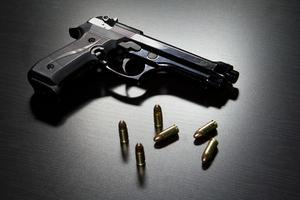 Criminal sentencing is one of the most debated topics in criminal law. At its heart, the idea is to calibrate a sentence to the crime's severity. This is why murder has a more severe punishment than theft. In the past, judges had a large amount of freedom in determining the sentences for a crime, but people began to grow concerned that this was unfair to offenders. Different people were getting different sentences for similar crimes. Consequently, the legislatures began prescribing more and more specific sentences for crimes.
Criminal sentencing is one of the most debated topics in criminal law. At its heart, the idea is to calibrate a sentence to the crime's severity. This is why murder has a more severe punishment than theft. In the past, judges had a large amount of freedom in determining the sentences for a crime, but people began to grow concerned that this was unfair to offenders. Different people were getting different sentences for similar crimes. Consequently, the legislatures began prescribing more and more specific sentences for crimes.
Unfortunately, these more specific sentences have led to their own problems, and now more people are calling for sentencing reform. To that end, the Illinois General Assembly created the Joint Criminal Justice Reform Committee to review current sentencing laws and make recommendations to places that they ought to be changed. Soon, the Committee is expected to announce a set of recommendations for reforming sentences for gun crimes.
What Are the Degrees of Murder in Illinois?
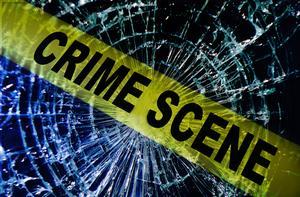 Murder is the most serious crime under Illinois law, but it is complicated in that it can be charged in different "degrees," which represent the exact seriousness of the crime. The highest degree of murder is the first degree, with second degree murder being less serious. The two crimes are similar in their elements, but there are key differences. First degree murders are intentional killings in violation of the law, whereas second degree murders are actions that would constitute first degree murder but for the influence of some factor making them less serious.
Murder is the most serious crime under Illinois law, but it is complicated in that it can be charged in different "degrees," which represent the exact seriousness of the crime. The highest degree of murder is the first degree, with second degree murder being less serious. The two crimes are similar in their elements, but there are key differences. First degree murders are intentional killings in violation of the law, whereas second degree murders are actions that would constitute first degree murder but for the influence of some factor making them less serious.
First Degree Murder
Killings with the highest level of intent in Illinois are designated first degree murder. In order to qualify for first degree murder, someone must undertake an act that kills someone, and the individual had to either intend to kill or seriously injure the person or at least he or she had to know that this act would kill or seriously injure the person. Alternatively, people can also be charged with first degree murder under Illinois's felony murder rule. This rule states that when a person kills someone in the course of committing a forcible felony, then the person is guilty of first degree murder regardless of his or her intent.
How Pardons Work in Illinois
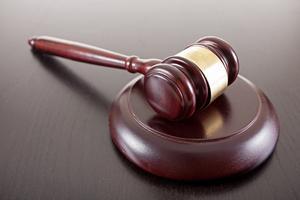 Convictions for criminal offenses can follow a person for the rest of his or her life. A youthful mistake can make it difficult to find a place to live or get hired for a job. Fortunately, the law provides a variety of options for people looking to have their criminal records wiped away.
Convictions for criminal offenses can follow a person for the rest of his or her life. A youthful mistake can make it difficult to find a place to live or get hired for a job. Fortunately, the law provides a variety of options for people looking to have their criminal records wiped away.
Some of these remedies, like sealing or expungement, do not completely eliminate the record, or only work for certain crimes. For people who do not qualify for those remedies, there is still one option remaining, the governor's pardon. Pardons, also referred to as executive clemency, are a broader option available for all crimes, however, decisions are made on a case by case basis, so having a strong pardon application is important.
The Benefits of Pardons
Pardons are a power the Governor has to forgive any and all crimes. This sort of forgiveness can come with a wide array of different benefits. For instance, the Governor can restore all the rights and privileges that a person loses when he or she is convicted of a felony. These include the right to hold certain jobs, and the right to legally own a firearm, along with some others. The Governor may also choose to make the crimes available to be sealed or expunged. The exact effect of that decision depends on which he chooses to use. A sealed record is unavailable to most employers, but is still available to law enforcement or if the judge orders it unsealed. Conversely, an expunged record is actually destroyed, so it is the preferable option.
First DuPage County Conviction under Illinois' RICO Law
 A DuPage County jury recently became the first jury in the county to convict a person under a recently-passed Illinois law designed to combat gang violence. The man was convicted of being part of a drug ring operating throughout the county. Other alleged members of the drug ring are currently awaiting trial.
A DuPage County jury recently became the first jury in the county to convict a person under a recently-passed Illinois law designed to combat gang violence. The man was convicted of being part of a drug ring operating throughout the county. Other alleged members of the drug ring are currently awaiting trial.
The Illinois law that the man was convicted under is known as the Illinois Street Gang and Racketeer Influenced and Corrupt Organizations Act, but is often shortened to Illinois' RICO. The law is modeled after a federal law that was supposed to give police and prosecutors more advanced tools to deal with the more sophisticated types of organized crime that have arisen recently. Illinois' RICO has a similar goal, with a particular focus on making it easier to shut down street gangs. However, these laws can also be controversial. Despite their positive goals, some people believe that they make it too easy for prosecutors to threaten stiff penalties for people with little relation to the gang's activities.
Illinois Passes Victims' Rights Amendment
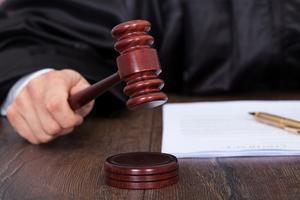 Voters across the state recently went to the ballot boxes to make decisions about their elected officials, but these are not the only decisions they faced. The Illinois ballot also included an unusually high number of referendum and advisory questions, questions that allow voters to weigh in directly on the process of making laws. One of these questions was a possible constitutional amendment that affected the Illinois Crime Victims' Bill of Rights. This amendment, which passed by an overwhelming margin of over three to one, made a variety of changes to expand the rights of victims in the criminal process. It also gave the victims the ability to enforce these rights in court.
Voters across the state recently went to the ballot boxes to make decisions about their elected officials, but these are not the only decisions they faced. The Illinois ballot also included an unusually high number of referendum and advisory questions, questions that allow voters to weigh in directly on the process of making laws. One of these questions was a possible constitutional amendment that affected the Illinois Crime Victims' Bill of Rights. This amendment, which passed by an overwhelming margin of over three to one, made a variety of changes to expand the rights of victims in the criminal process. It also gave the victims the ability to enforce these rights in court.
What the Amendment Does
Section 8.1 of Article I of the Illinois Constitution is the Crime Victims' Bill of Rights. Prior to the amendment, the section provided victims with a variety of rights like the right to be present at the offender's trial. The Amendment modified some of these rights and added new ones. For instance, the Bill of Rights provided victims the right to dignity and privacy throughout the proceedings. The amendment modified that provision to add a right to not be intimidated, harassed or abused. The amendment also added a provision to require courts to consider the victim's safety when determining issues of bail and release after an arrest or conviction. The full text of the changes made by the amendment is available here. In addition to these substantive changes, a new portion of the law provides victims with "standing" to enforce these rights in court.
Criminal Records: Sealing and Expungement
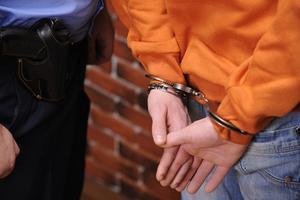 Criminal convictions often result in punishments for the offender like fines or jail time. These sentences are carefully calibrated to penalize the offender to the extent they deserve and no more. This is why judges do not hand down life sentences for petty theft. Yet all too often, the consequences of a criminal record can follow people long after they have paid their debt to society. Carrying a criminal record can make it difficult to get certain licenses and difficult to find employment. Fortunately, the law gives certain people a remedy for this by allowing them to expunge or seal their records after a certain amount of time. Expunging and sealing are two different processes, and different people will qualify for each one.
Criminal convictions often result in punishments for the offender like fines or jail time. These sentences are carefully calibrated to penalize the offender to the extent they deserve and no more. This is why judges do not hand down life sentences for petty theft. Yet all too often, the consequences of a criminal record can follow people long after they have paid their debt to society. Carrying a criminal record can make it difficult to get certain licenses and difficult to find employment. Fortunately, the law gives certain people a remedy for this by allowing them to expunge or seal their records after a certain amount of time. Expunging and sealing are two different processes, and different people will qualify for each one.
Expunging a Record
Expunging a record is the more preferable of the two options, but fewer people will qualify for it. If a person successfully gets his or her record expunged, then the police remove any record of the arrest from his or her files. Then, the court removes all public records of the arrest, and places the file in storage. The expungement then carries over to other federal databases to make sure the record is cleared out everywhere. Additionally, expunged records do not have to be reported on job applications, and they can only be retrieved by a court order.







